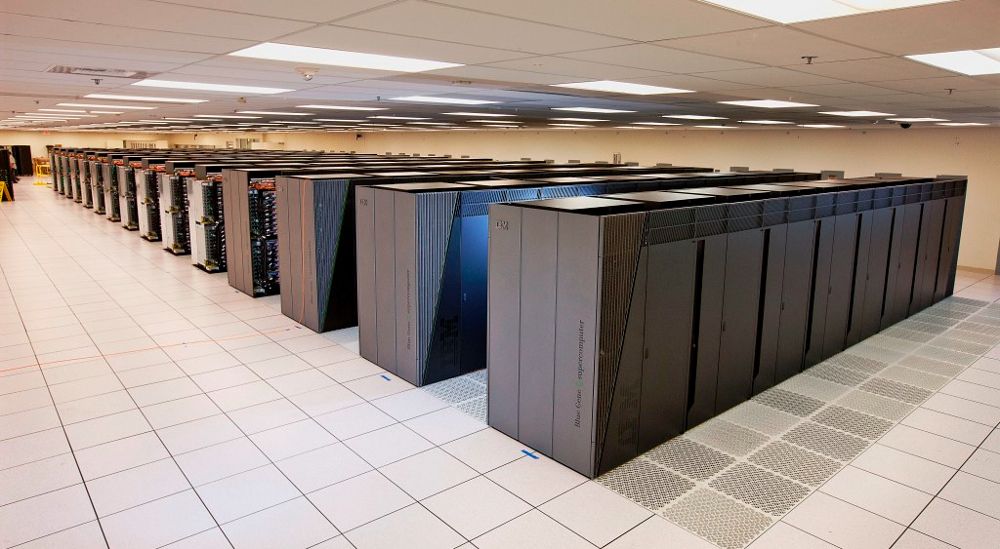Computing has come an incredibly long way over the past few decades. We are amidst a technological revolution, with machines becoming more advanced by the year. Two particularly advanced inventions, the supercomputer and the quantum computer, have masses of applications and potential. But what's the difference between a supercomputer and a quantum computer, and which is better?
What Is a Supercomputer?
Supercomputers are huge systems that can span entire rooms in size. These machines do not look anything like your typical desktop PC or laptop. Rather, supercomputers consist of large groups of processors, all working together to achieve a particular goal.
Supercomputers first emerged in the 1960s, upon the creation of the CDC (Control Data Corporation) 6600. This is considered the first supercomputer ever built and was around ten times more powerful than the standard computers at the time. But things have come a very long way since then.
Today's supercomputers are extremely powerful, to say the least. But, of course, this is all relative. The CDC 6600 was a phenomenon in computing but would be seen as nothing special today. After all, it only took half a decade for it to be outshone by the CDC 7600. So, keep that in mind when considering the power of supercomputers today.
Like your own PC, supercomputers can process and store data, but go much further beyond that. These machines can perform incredibly complex calculations and simulations that could never be achieved by humans or the computers we all use in our daily lives. They can also quickly carry out processes that a regular computer may take months or years to complete.
For example, a modern supercomputer could predict the result of a nuclear explosion, produce highly complex models of the brain, and even carry out simulations of the origins of the universe. The capabilities of these machines are somewhat mind-blowing and have proven helpful in an array of different industries.
But, at their core, supercomputers have the same nuts and bolts as regular computers. The difference is that these computers are huge and consist of thousands or hundreds of thousands of CPUs (central processing units), and therefore harbor vastly higher processing power than your standard PC. The computer you use daily probably has a handful of CPU cores, with some only having one. So, imagine what could be achieved if its power was increased many, many times over.
Supercomputers are fascinating but incredibly expensive to build and maintain. Millions of dollars can be poured into a single supercomputer, and huge amounts of electrical power are required to keep them in operation.
And even these highly advanced machines have their limitations. Particularly, supercomputers' abilities are limited to their size. Today's supercomputers are already huge and cost a lot of money to operate. So, the bigger a supercomputer gets, the more expensive it gets.
On top of this, supercomputers generate huge amounts of heat that need to be removed to prevent overheating. All in all, the use of supercomputers is a very pricey and exhaustive process. In addition, there are some problems that supercomputers cannot solve simply because they are too complex.
However, a relatively new player in the computing game could harbor the ability to surpass supercomputers and achieve what they cannot: quantum computers.
What Is a Quantum Computer?
The concept of quantum computing first arose in the 1980s. During this time, pioneers such as Richard Benioff, Richard Feynman, and Yuri Manin contributed to developing the quantum computing theory. But at this point in time, quantum computing was just an idea and had never been applied in a real-world setting.
Eighteen years later, in 1998, Isaac Chuang, Neil Gershenfeld, and Mark Kubinec created the first quantum computer. The processing speed of this computer is rudimentary compared to today's most advanced quantum computers, but the development of this first-of-its-kind machine was nothing short of revolutionary.
As you can see in the image above, quantum computers don't look anything like typical computers. This is because they operate in drastically different ways. While computers and supercomputers use binary code to store information, quantum computers use tiny units known as qubits (or quantum bits).
Qubits are unimaginably small. They are made out of even smaller quantum systems, like protons and electrons, the fundamental components of atoms. What's great about qubits is that they can exist in multiple states at once. Let's break this down.
Binary code is just that, binary. This means that bits can only exist as a zero or a one, which can be limiting when it comes to carrying out advanced processes. On the other hand, Qubits can exist simultaneously in multiple states, known as quantum superposition. Qubits can also achieve quantum entanglement, in which pairs of qubits link together.
Using quantum superposition, quantum computers can consider multiple qubit configurations at once, making it much easier to solve highly complex problems. And, through quantum entanglement, two qubits can exist in the same state and affect each other in mathematically predictable ways. This contributes to the processing ability of quantum computers.
Overall, the ability to consider multiple states simultaneously gives quantum computers the potential to solve extremely complex calculations and run highly advanced simulations.
Various companies are currently working on the development of quantum computers, including IBM and Google. For example, as per New Scientist, in 2019, Google claimed that its quantum computer, Sycamore, surpassed a supercomputer in its capabilities. Google stated that, in 200 seconds, Sycamore could solve a calculation that would take a supercomputer 10,000 years to complete.
But just two years later, again, as per New Scientist, a non-quantum algorithm was developed in China that made it possible for regular computers to solve the same problem in just a few hours, meaning a supercomputer would certainly be capable of solving it, too.
So, there's a big "if" hanging over the entire field of quantum computing. This technology is still very much in its early stages and has a long way to go before it can be relied on as an alternative to supercomputers.
Quantum computers are incredibly difficult to build and program and still have high error rates. On top of this, the current processing power of quantum computers makes them entirely unsuitable for typical applications. As a result, there are a lot of growing pains that quantum computing must go through before becoming a reliable and widely used technology.
Supercomputers Are the Go-To for Now
While quantum computers have the potential to vastly surpass supercomputers, this is still largely hypothetical. One day, we may see quantum computing advance to the point where supercomputers are no longer necessary. There's no denying that huge developments have already been made in this field. But for now, quantum computers are still in their early stages, and it may take decades for them to become mainstream.



